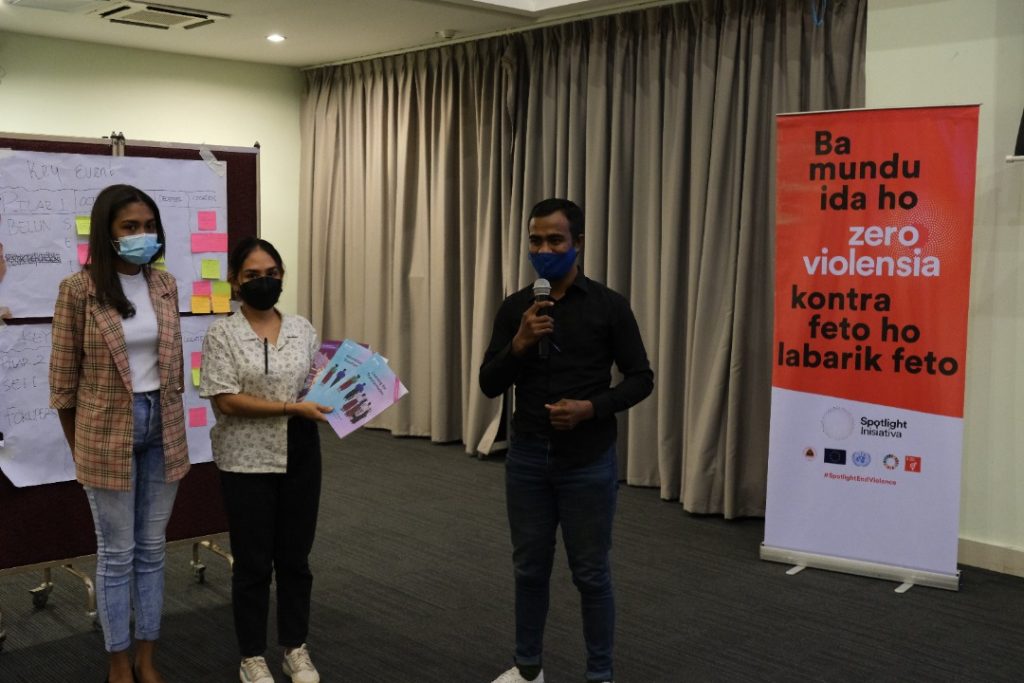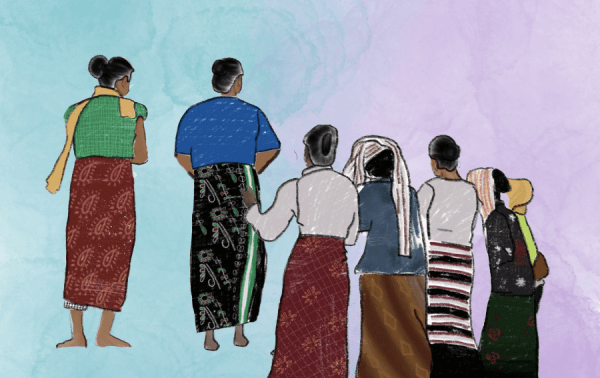In early 2021 as part of the UN Women’s Spotlight Initiative, AJAR, together with ACbit and FONGTIL, began facilitating a twelve-month ‘learning by doing’ project, to strengthen transformative approaches to end GBV. AJAR, ACbit and FONGTIL set up a Learning Consortium of 22 NGOs and CSOs based in eight municipalities – Dili, Bobonaro, Ermera, Viqueque, Baucau, Aileu, Liquisa and Covalima. Members of the Consortium represent members of the LGBTIQ+ community, people with disabilities, men and boys, youth, and female survivors of sexual/gender-based violence. The organisations have a diverse range of approaches and experience in GBV prevention.

This project approach has four elements:
- The Learning Consortium has: (i) conducted a reflection workshop, identifying the learning needs of the Consortium members; (ii) conducted in-house training for implementing staff in online-learning, and training for members of the learning consortium, including in the areas of financial management, fundraising, organizational development, and M&E, participatory action research and social transformation. (iii) facilitated virtual exposure visits to learn transformative approaches in Indonesia, Sri Lanka, and the South Pacific; and (iv) created a participatory monitoring, evaluation and learning or MEL plan through a mentoring program.
- The Knowledge Facility is in the process of (i) producing manuals from the Reflection Workshop and the trainings, case studies from the virtual exchanges, and short videos on lessons learnt.
- Learning innovations: members of the consortium will develop and implement innovative new approaches to learning, training, research studies, campaigns, and have utilised lessons learnt and the knowledge products to conduct this.
- Suco-level pilot projects: pilot projects will be implemented in seven municipalities, and awards for best village-level innovations and case studies will be presented.
We hope that our current momentum on learning and implementing innovative approaches to gender based violence will continue in the development of effective tools and measures for prevention, including a reporting and referral mechanism.

